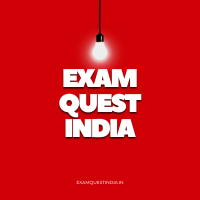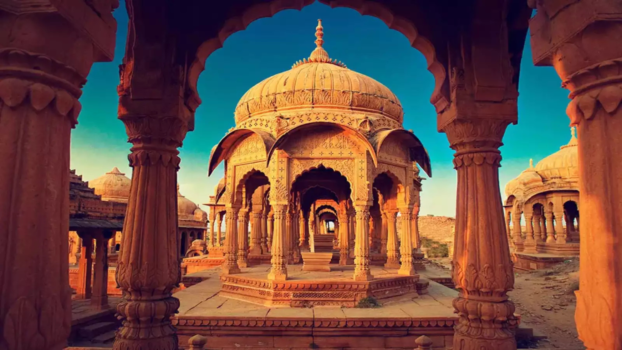The UPSC Civil Services Examination is one of the most challenging and prestigious exams in India. History is a crucial subject for this exam, covering a vast expanse of time and events. Understanding the UPSC Syllabus for History is the first step towards effective preparation.
Here’s a breakdown of the History syllabus for the UPSC Civil Services Examination:
1. Ancient India
- Indus Valley Civilization: This includes its origin, extent, characteristics, major cities, social and economic organization, religion, and decline.
- Vedic Period: Focus on the religious and philosophical ideas, social and political organization, and the emergence of new religious movements like Buddhism and Jainism.
- Mahajanapadas: Understand the rise of powerful kingdoms, their political systems, and cultural developments.
- Mauryan Empire: Key aspects include the rise and fall of the Mauryan Empire, the policies of Chandragupta Maurya and Ashoka, and the administrative system.
- Gupta Empire: Learn about the golden age of India, its artistic and scientific achievements, and the social and economic conditions.
- Post-Gupta Period: Focus on the rise of regional powers, the emergence of new religions, and the socio-economic changes.
2. Medieval India
- Delhi Sultanate: Understand the political, social, and cultural impact of the Delhi Sultanate, the contributions of various rulers, and the development of Indo-Islamic culture.
- Mughal Empire: Learn about the rise and expansion of the Mughal Empire, the policies of Akbar and other rulers, and the socio-economic and cultural developments during this period.
- Bhakti and Sufi Movements: Explore the rise and impact of these movements on Indian society and culture.
- Regional Kingdoms: Study the rise and fall of regional kingdoms like the Vijayanagara Empire, the Bahmani Kingdoms, and others.
3. Modern India
- European Colonialism: Understand the arrival of Europeans in India, the establishment of trading companies, and the gradual rise of British power.
- Indian National Movement: This is a crucial part of the syllabus. Focus on the early phase of the movement, the contributions of various leaders like Raja Ram Mohan Roy, Dadabhai Naoroji, and Mahatma Gandhi.
- Post-Independence India: Study the challenges faced by independent India, including partition, economic development, and social and political issues.
Key Considerations for UPSC History Preparation:
- Go beyond rote learning: Focus on understanding the underlying themes and connections between different historical periods.
- Develop critical thinking skills: Analyze historical events, interpret primary and secondary sources, and form your own informed opinions.
- Practice answer writing: Regularly practice writing essays and answer questions to improve your writing skills and time management.
- Refer to standard textbooks: Use reliable textbooks and reference books like NCERT books, Spectrum, and Bipin Chandra’s books.
- Stay updated: Keep yourself updated on current affairs related to history, such as archaeological discoveries and historical debates.
Tips for Effective History Preparation:
- Create a study schedule: Allocate specific time slots for history preparation in your overall study schedule.
- Make notes: Summarize key concepts and events in your own words to aid in revision.
- Use mind maps and diagrams: Visual aids can help you understand complex historical relationships and timelines.
- Join study groups: Discuss historical concepts with fellow aspirants to gain different perspectives and clarify doubts.
- Take mock tests: Regularly take mock tests to assess your progress and identify areas for improvement.
Importance of History for UPSC:
History is not just a subject; it’s a window into the past that helps us understand the present and shape the future. It provides valuable insights into:
- Social and political evolution: Understanding historical trends can help you analyze current social and political issues.
- Cultural diversity: History teaches us about the rich and diverse cultures of India and the world.
- Decision-making: Analyzing past events can help you make informed decisions in various aspects of life.
- Critical thinking: Studying history encourages critical thinking skills, such as analysis, interpretation, and evaluation.
Beyond the Syllabus: Exploring Historical Resources
- Visit historical sites: Visiting historical sites can bring history to life and provide a deeper understanding of past events.
- Watch historical documentaries: Documentaries can provide a visual and engaging way to learn about history.
- Read historical fiction: Novels and short stories set in historical periods can provide a different perspective on historical events.
- Engage in discussions: Discuss historical issues with friends, family, and mentors to gain different perspectives.
Conclusion
The UPSC Syllabus for History is vast and requires dedicated effort and a structured approach. By understanding the syllabus, developing a strong foundation in historical knowledge, and employing effective study strategies, you can increase your chances of success in the UPSC Civil Services Examination. Remember, consistent effort, perseverance, and a passion for learning are key to achieving your goals.
Disclaimer: This article is for informational purposes only and should not be considered professional advice.
Discover more from ExamQuestIndia: The Best Exam Prep Platform in India
Subscribe to get the latest posts sent to your email.







